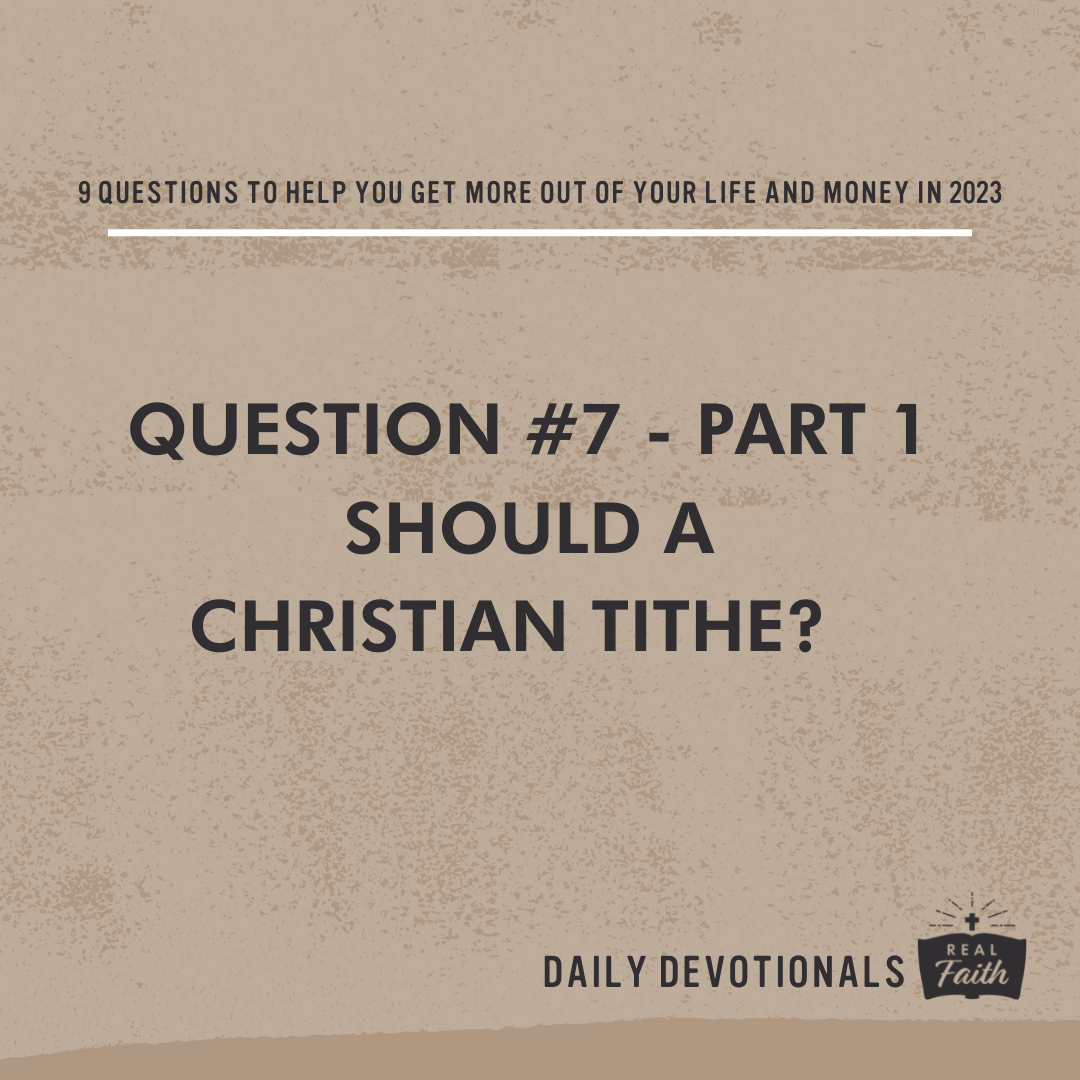Should Christians Tithe? Part 1
Malachi 3:8-12: “Will man rob God? Yet you are robbing me. But you say, ‘How have we robbed you?’ In your tithes and contributions. You are cursed with a curse, for you are robbing me, the whole nation of you. Bring the full tithe into the storehouse, that there may be food in my house. And thereby put me to the test, says the LORD of hosts, if I will not open the windows of heaven for you and pour down for you a blessing until there is no more need. I will rebuke the devourer for you, so that it will not destroy the fruits of your soil, and your vine in the field shall not fail to bear, says the LORD of hosts. Then all nations will call you blessed, for you will be a land of delight, says the LORD of hosts.”
Unlike any other time of year, the holidays are a season of generosity. This tradition of giving goes all the way back to the first Christmas when Jesus was born.
If you remember the story, three Magi (we don’t know exactly how many men) showed up to worship Jesus in part by giving Him three gifts. These men are mysterious as we know little about them, but it is commonly thought that they were pagan leaders in another religion, powerful, wealthy, and involved in astrology as they followed a star to find Jesus.
Their gifts of gold, frankincense, and myrrh were peculiar and prophetic gifts for a child. Gold is for kings on a throne and reminds us that, though a poor baby, Jesus was and is in fact the universal King of Kings. Frankincense is for priests in a temple and reminds us that Jesus has come to stand between God and us to remove sin and restore relationship. Myrrh is for dead people in a grave, and reminds us that Jesus came to give His life on the cross in our place for our sins. Myrrh is basically an anesthetic used for those who are suffering and dying. Myrrh was offered to Jesus on the cross (Mark 15:23) and used to prepare Jesus’ body for burial (John 19:39). In summary, Jesus is the greatest gift ever given as John 3:16 says, “For God so loved the world, that he gave his only Son…”
Before God asks us to give some of our best (money), He asks us to give all of our worst (sin). Before God asks us to give some of our best, He gives us all of His best in the form of His Son.
Jesus taught a lot about giving so we would learn to worship God with our wealth instead of worshipping wealth as our God. Roughly 25 percent of Jesus’ teaching is on stewardship. Roughly 800 sections of the Old and New Testament in total talk about stewardship. The basic two premises of stewardship are these: One, God is the owner of all resources. Two, we are the manager of some of God’s resources.
This explains the language of “robbing” from God in Malachi. Just like if the bank, or your retirement plan manager, started spending your money on themselves rather than the way that you directed them, God sees us spending His money wrongly as thievery. To remind us, God even put on American currency, “In God we trust”. We usually don’t see things in this way, as we tend to be more unaware of financial sins than other sins. So, we are more aware that we have crossed a line when we sexually touch a person we should not touch than when we touch a dollar we should not touch.
In the final pages of the Old Testament, God in Malachi has a lot to say about stewardship, including tithing, which we will examine more fully in the next two daily devotionals.
What are your stewardship goals for the new year (e.g. giving to God, paying off debt, increasing savings, investing wisely, etc.?)





